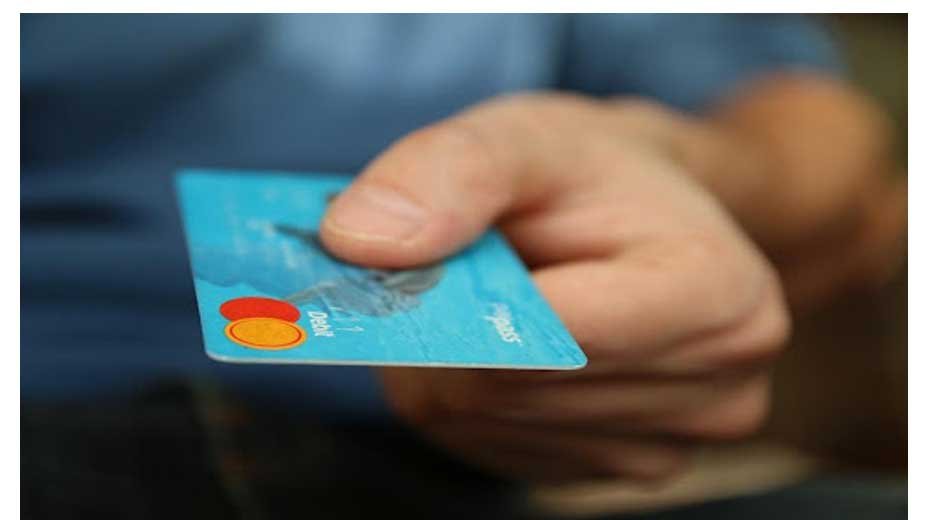When it comes to building credit, many people think of it as a boring chore—just paying bills and keeping track of expenses. But what if I told you that you could earn rewards while doing it? Rewards credit cards can be an enticing option, allowing you to earn points, cash back, or travel miles just for using your card. However, it’s essential to approach these cards with caution. They can lead to overspending and may come with high interest rates and annual fees. So, how do you navigate the world of rewards credit cards while ensuring you’re building your credit wisely? Let’s dive in!
Using Credit Wisely
While rewards credit cards can help you build credit, it’s essential to use credit wisely. Always make payments on time, as late payments can harm your credit score. Set up reminders or consider automatic payments to ensure you never miss a due date.
If you find yourself in a financial bind and need extra cash, it might be tempting to rely on personal loans or credit cards. While free personal loans online can be an option, make sure to evaluate your financial situation carefully before going this route. It’s important to have a plan for repayment to avoid falling into a cycle of debt.
Understanding the Basics of Rewards Credit Cards
Rewards credit cards work by giving you incentives for every dollar you spend. Depending on the card, you might earn points redeemable for travel, merchandise, or cash back. Some cards even offer sign-up bonuses that can give you a hefty boost if you meet a minimum spending requirement within the first few months.
But while these rewards sound fantastic, it’s essential to understand that they come with responsibilities. If you’re not careful, using these cards can lead to overspending. You might find yourself buying things just to earn rewards, which defeats the purpose of being financially responsible.
Additionally, rewards credit cards can have high-interest rates and annual fees. If you carry a balance on your card, the interest charges can quickly outweigh any rewards you earn. To make rewards cards work for you, it’s crucial to pay your balance in full each month and understand the terms associated with your card.
Building Credit Responsibly
Building credit is an important step in your financial journey, and rewards credit cards can help with that. Using a rewards card responsibly can help you establish a positive credit history, as long as you follow some basic guidelines.
Start by making small purchases that you can afford to pay off each month. This could be anything from groceries to gas. By keeping your spending within your budget and paying your balance in full, you’ll demonstrate to lenders that you’re a responsible borrower.
To further build your credit, keep an eye on your credit utilization ratio, which is the amount of credit you’re using compared to your total credit limit. Ideally, you want to keep this ratio below 30%. So, if your credit limit is $1,000, try not to use more than $300 at any given time.
Avoiding Overspending for Rewards
It’s easy to get caught up in the allure of rewards and overspend. To prevent this, create a budget that outlines your monthly expenses and stick to it. Make sure your rewards card fits within your overall financial plan.
A helpful strategy is to use your rewards card for regular expenses you would have anyway—like bills or groceries—but don’t go out of your way to make purchases just to earn rewards. For example, if you typically spend $200 a month on groceries, use your rewards card for that, but don’t suddenly decide to buy a new TV just because it offers a high reward rate.
Also, consider the 24-hour rule before making significant purchases. If you feel tempted to buy something outside your budget, wait 24 hours before making the decision. This cooling-off period can help you decide if the purchase is necessary or if it’s just an impulse buy.
Maximizing Rewards and Benefits
If you’re committed to using a rewards card, it’s essential to maximize the benefits you receive. Research the types of rewards your card offers and plan your spending accordingly. For example, if your card offers extra points for dining out, you might want to use it for restaurant bills while keeping other expenses on a different card.
Also, keep an eye out for promotional offers or limited-time bonuses. Many credit card companies offer increased rewards for specific categories during certain months. Taking advantage of these promotions can significantly boost your rewards.
Don’t forget to redeem your rewards, either! Some rewards have expiration dates, so be sure to use them before they vanish.
Considering Alternatives
While rewards credit cards can be beneficial, they aren’t the only option for building credit. Consider other methods, such as secured credit cards, which can be a great way to establish or rebuild your credit without the temptation of rewards. These cards require a cash deposit that acts as your credit limit, making them less risky.
Additionally, consider becoming an authorized user on a trusted family member’s credit card. This allows you to build credit without the responsibility of managing a separate account, as long as the primary cardholder maintains good credit habits.
Reviewing Your Financial Health
Finally, regularly review your financial health to ensure you’re on track. Check your credit report at least once a year to see how your credit-building efforts are paying off. You can access free credit reports from major credit bureaus once a year.
Monitoring your credit score can help you identify any issues or areas for improvement. Celebrate your successes, but also be aware of any factors that could negatively impact your score.
Conclusion
Earning rewards while building credit can be a smart financial strategy if done correctly. By understanding how rewards credit cards work, building credit responsibly, avoiding overspending, and maximizing your rewards, you can make the most of your financial choices. Remember, the key is to prioritize paying your balance in full and staying within your budget. With the right approach, you can enjoy the benefits of rewards without sacrificing your financial stability. So go ahead—start earning those rewards and building your credit with confidence!





